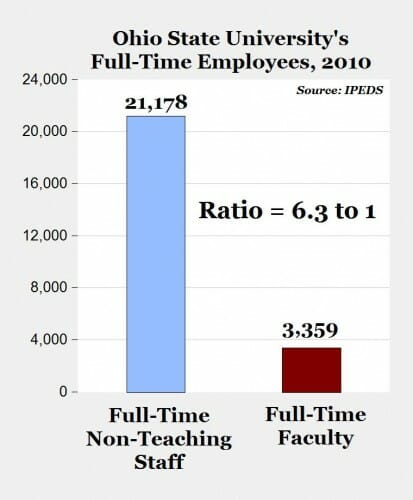No, not the Affordable Care Act, though we need to get rid of that, too. In this case I am talking about the Arizona Commerce Authority. This is one of those ubiquitous local / state "development" efforts that mainly consists of handing out corporate welfare to a few well-connected companies who threaten to leave or build their new plant somewhere else.
Dru Stevenson at the Privatization blog has been nice enough to invite me to blog from time to time over at his place, despite the fact that we do not always agree. But we are in total agreement on this effort:
Even from a conservative, free-market perspective, government subsidies for businesses distort markets, foster monopolies, undermine competition, and reduce efficiency. The same complaints that business advocates make about the welfare system apply to government programs to help businesses - the vicious cycle of dependence, the lack of incentive to work hard or face difficult choices, the inevitable favoritism (some businesses get taxpayer subsidies, others miss out, and those that do have an unfair advantage over competitors who might otherwise win in a free marketplace). It has a chilling effect on market-driven innovation, improvements in efficiency, or "creative destruction." The subsidies can cause inflation as the local market prices correct for the infusion of unearned money. The inherent risks in entrepreneurship get externalized onto taxpayers rather than internalized by those who hope to reap the profits if they get lucky. The conflict-of-interest problem is not just that the businessmen will engage in whitewashed embezzlement, diverting funds to their own businesses or friend's businesses (or to their suppliers, in hopes of getting discounted inputs).
The problem is also that other firms - firms that might be more efficient, providing better goods and services at lower cost - face higher entry barriers when the existing holders of market share are bolstered by government handouts. In other words, I see little difference in the morality of handouts for poor individuals/families and handouts for businesses. There is a spiritual virtue in helping the poor, of course, but also a virtue in helping those who are hard-working and who have made sacrifices to become successful. The problem for me is the unintended consequences of government subsidies for entities that are supposed to compete and succeed in a free market.
I encourage you to check it all out.
The reason this made his privatization blog is that Arizona has actually privatized this function to an independent business group. Though an advocate of privatization in many realms, this makes me queasy for a couple of reasons:
- I can't get excited about privatizing an activity that should not be occurring, or is, as Stevenson so ably explains, actually detrimental
- I am comfortable privatizing operational things -- landscaping, running buildings, cleaning bathrooms, etc -- but privatizing the handing out of political patronage is an odd one for me and I don't really know how to think about it. On the one hand, this is essentially what the PPACA (Obamacare, the other ACA) is doing with difficult decisions like determining which procedures should be on the must-cover list for insurers by putting them in the hands of independent groups. But I have criticized those provisions of the PPACA for lack of accountability, and I believe the same arguments apply here
The only quibble I have with the criticism of the Arizona group is that, like many criticisms of privatization, it does not actually make a comparison to government-run efforts. Sometimes even mistake-riddled private efforts can be better than disasterous public management. For example this criticism:
According to Arizona PIRG's report, only two of the 13 incentive programs even track how many jobs or other benefits they generate -- and none disclose that information publicly. For all its business-savvy rhetoric, the ACA can't demonstrate performance if it doesn't track results. Only one program publicly discloses what companies promise to deliver for their subsidies. Worse still, only 4 of the 13 programs even disclose which companies received subsidies or how much. And when companies that receive subsidies fail to deliver on promised economic development benefits, the ACA can reclaim taxpayer subsidies for only one program, and there is no way for the public to see if this ever happens.
None of this is good, but note that for most similar state-run development programs, the number of programs that track their results is usually less than 2 in 13, the number is usually none. And the fact that there is some sort of clawback provision on funds is better than exists in most state relocation and other subsidy programs. In fact, most third-party reviews of state-run corporate relocation and plant location subsidy awards show that they universally fall well short of their pr0mised benefits, though this analysis is really hard to do because there is so little transparency in state activities of this sort.
My quibble, then, is that I am not sure the bad results here are a function of privatization or just the activity itself, as state-run efforts seem to do no better.
Update: I have written before about government corporate subsidies and attempts at venture capital investment in the context of the "big shot" effect. Many times I have come to suspect the biggest beneficiary of these programs is to the administrators themselves, who have no money of their own and wouldn't ever be trusted to manage a private portfolio but get to act as "big shots" with other peoples' money. They get the psychic benefit of being little junior Donald Trumps. This seems especially evident to me with Glendale, AZ, but seems to be an element of all these schemes.
